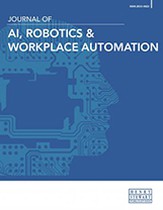Artificial intelligence in central banks: Governance and implementation
Abstract
This paper discusses the implementation and governance of artificial intelligence (AI) in central banks, drawing on a survey by the Irving Fisher Committee on Central Bank Statistics (IFC) of the Bank for International Settlements (BIS). AI has become strategically important for central banks, with the main question being how to use it effectively and responsibly to support their tasks and guide decision-making. Central banks’ experience shows that AI deployment is being complemented with adequate and robust governance, especially to ensure the development of effective user-focused applications and mitigate the associated risks. However, AI implementation also brings several IT challenges, including the pressing yet costly need to access more computational power. Looking ahead, making further progress on data management, governance and infrastructure, as well as ensuring that society can keep accessing high-quality reference information appear to be key priorities for making the most of AI opportunities.
The full article is available to subscribers to the journal.
Author's Biography
Douglas Kiarelly Godoy De Araujo Douglas Araujo rejoined the Central Bank of Brazil in August 2025, where he works in the Research Department. Before that, Douglas has been Adviser for data science in economics since May 2025. Before that, he was an economist at the BIS International Data Hub from 2022 to April 2025. Previously, Douglas was in the Secretariat of the Basel Committee on Banking Supervision from 2018 to 2022 overseeing a range of policy and supervisory topics. Prior to that, he worked at the Central Bank of Brazil on macroprudential supervision (2011–15) and led the efforts to develop and implement the Brazilian proportionality framework for prudential regulation (2015–18). Douglas worked on financial stability monitoring as a fellow at the BIS Financial Stability Institute in 2014. From 2015 to 2018, he also supported a number of countries in enhancing their macroprudential frameworks as a member of the International Monetary Fund (IMF) missions. Until 2011, Douglas worked in the private sector in Brazilian financial markets. His current research spans forecasting, monetary policy, banking economics and causality in econometrics. Douglas also contributes to open source software at the intersection of machine learning and economics.
Rafael Schmidt is the Head of IT in the Monetary and Economic Department at the Bank for International Settlements (BIS) where he oversees data processing, analytics and dissemination systems. He also serves as Chairman of the Statistical Data and Metadata eXchange (SDMX) Secretariat, promoting the SDMX data standard sponsored by numerous international organizations and certified by the International Organization for Standardization (ISO). Previously, he held managerial roles in the Risk Management Department at the BIS. He also held research positions at the University of Cologne and the London School of Economics and Political Science. Rafael graduated in Mathematics, Economics and Statistics. He holds a PhD and a habilitation in financial statistics and econometrics.
Olivier Sirello is Senior Statistical Analyst at the Monetary and Economic Department at the Bank for International Settlements (BIS). His expertise covers central bank statistics, balance of payments and securities statistics. He is also involved in a number of international initiatives related to official statistics, including the High-Level Group for the Modernisation of Official Statistics (HLG-MOS) of the United Nations Economic Commission for Europe (UN-EC). He previously worked as an economist-statistician at the Bank of France and held post-graduate teaching positions at Sciences Po Paris. He studied at Sciences Po, Paris, Princeton University and Bocconi University. He holds two MSc degrees in economics and public policy.
Bruno Tissot is the Head of Statistics and Research Support at the BIS and Head of the Secretariat of the Irving Fisher Committee on Central Bank Statistics (IFC). He is also the BIS Representative in the Statistical Data and Metadata eXchange (SDMX) Sponsors’ Committee and chairs the International Working Group on Securities Databases (WGSD). He has been working at the BIS since 2001, as Senior Economist and Secretary to the Markets Committee of Central Banks in the Monetary and Economic Department and then as the Adviser to the General Manager and Secretary to the BIS Executive Committee. Between 1994 and 2001 he worked for the French Ministry of Finance, having graduated from École Polytechnique (Paris) and École Nationale de la Statistique et de l’Administration Économique (ENSAE) engineering school in applied mathematics, statistics, and economic analysis. He is an Inspector General of the French Statistical Office, Institut National de la Statistique et des Études Économiques (INSEE).
Ricardo Villarreal has been an analyst in the Monetary and Financial Statistics Department at the Banco Central de Chile (CBC) since September 2022. He previously contributed to the statistical information services department, within the Statistics and Data Divisions. Ricardo has experience in the Chilean Mutual Funds Guild (2021–22), where he focused on regulation and competition. He is passionate about technology innovation and has contributed to the community by developing open source software for economic statistics. Ricardo holds a degree in Economics from the University of Chile.
